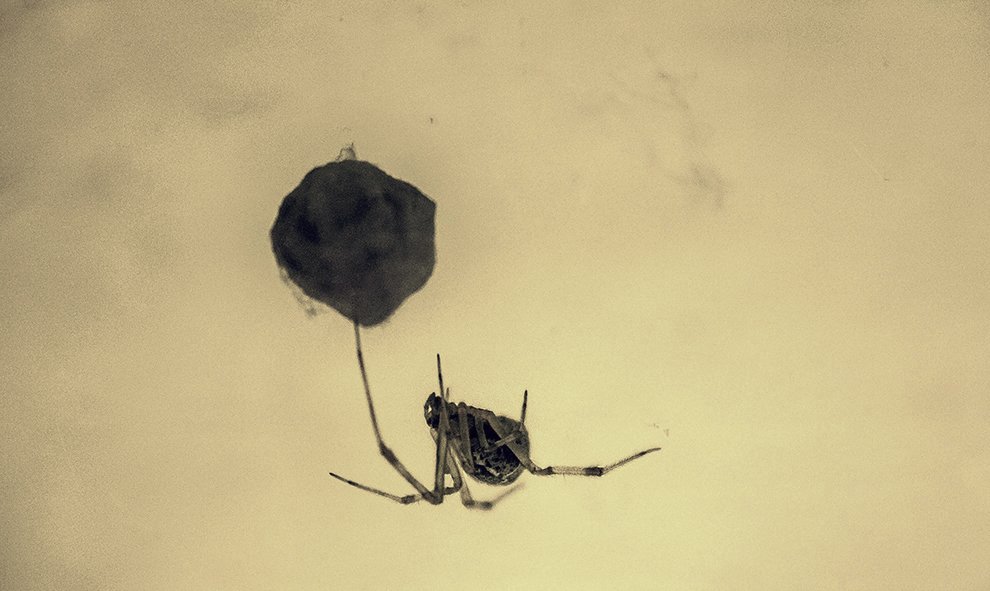The real cause of bites: spiders or mites?
Fall is a time for pumpkin picking, hay rides, Halloween, and right now at Baker, the emergence of spiders. These creepy crawlers have been causing havoc and fear among students, especially in some fraternity and sorority houses. However, as students squirm and scream, they may be overreacting to harmless creatures or accusing the wrong insect.
After finding a “large abundance” of the eight-legged pests hanging out in the basement of the Zeta Tau Alpha house and hearing complaints from sorority members who said they were bitten, House Manager Carson Ferren decided to confront the problem.
“We did a spider clean where we removed all furniture from all rooms, then swept, mopped, vacuumed and set spider traps underneath beds,” Ferren said. “We wanted to make sure no girls were in danger.”
Zeta Tau Alpha is not the only house having insect issues.
Carly Triggs, a sophomore Alpha Chi Omega member, went to the hospital earlier this week after being bitten by a brown recluse, a venomous spider indigenous to Kansas.
“I started to have a bad headache, and I was feeling nauseous,” Triggs said.
She was treated with intravenous antibiotics and a strong antibiotic ointment.
Greek communities are not the only places to be troubled with spiders. Morgan Francis, who lives in the New Living Center, said she has found four spider bites on her body and killed a few in her suite.
However scary the situation seems, according to Assistant Professor of Biology Scott Kimball, students should not be afraid.
Spiders reproduce in the summer, so there are more in the fall. However according to Kimball, there are only two species indigenous to Kansas that could be harmful to students: the brown recluse and the black widow.
“They’re our friends,” Kimball said. “Spiders have no incentive to bite people.”
Spiders can actually be helpful in killing pests such as mosquitoes and gnats, so rather than fearing them, maybe students on campus should let the bugs be.
Nevertheless, Campus Nurse Practitioner Jody Mitchell advises concerned students to come in to the health center and have it checked out.
“Anytime there is a breech in the skin barrier, we risk a chance for a superficial skin infection,” Mitchell said.
Although spiders can be unpleasant, the real issue according to Kimball and Mitchell, is most likely not the accused. Mites and chiggers are likely to cause similar bite marks that don’t show up until hours after the critter has had its feed.
Reporting on problems with mites at other Kansas colleges, KMBC recently reported, “Experts said it’s the worst season for mite bites in a decade, and most victims don’t know what they are, mistaking them for chigger bites, spider bites or bedbugs.”
So next time you slowly pull back the covers, afraid of seeing a scary spider, it may be helpful to remember that spiders are probably more scared of us than we are of them, and most of them are harmless.







